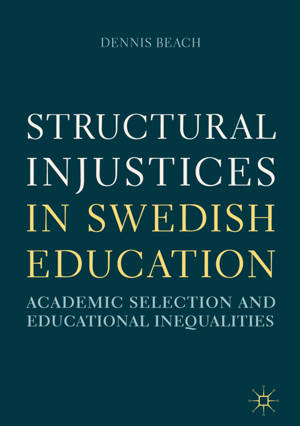
- Afhalen na 1 uur in een winkel met voorraad
- Gratis thuislevering in België vanaf € 30
- Ruim aanbod met 7 miljoen producten
- Afhalen na 1 uur in een winkel met voorraad
- Gratis thuislevering in België vanaf € 30
- Ruim aanbod met 7 miljoen producten
Zoeken
Structural Injustices in Swedish Education
Academic Selection and Educational Inequalities
Dennis Beach
Hardcover | Engels
€ 128,45
+ 256 punten
Uitvoering
Omschrijving
While Sweden is often viewed as a benchmark for equality within education, this book examines this assumption in greater depth. The author argues that Sweden's education system - even prior to the global spread of neoliberalism in education, meta-policies and privatization - was never particularly equal. Instead, what became apparent was a system that offered advantages to the upper social classes under a sheen of meritocracy and tolerable inequalities. Combining ethnographic and meta-ethnographic methodologies and analyses, the author examines the phenomenon of structural injustice in the Swedish education system both vertically and diachronically across a period of intensive transformation and reform. This revealing volume offers a mode of engagement that will be of value and interest to researchers and students of injustices within education, as well as policy makers and practitioners.
Specificaties
Betrokkenen
- Auteur(s):
- Uitgeverij:
Inhoud
- Aantal bladzijden:
- 346
- Taal:
- Engels
Eigenschappen
- Productcode (EAN):
- 9783319954042
- Verschijningsdatum:
- 25/09/2018
- Uitvoering:
- Hardcover
- Formaat:
- Genaaid
- Afmetingen:
- 148 mm x 210 mm
- Gewicht:
- 576 g

Alleen bij Standaard Boekhandel
+ 256 punten op je klantenkaart van Standaard Boekhandel
Beoordelingen
We publiceren alleen reviews die voldoen aan de voorwaarden voor reviews. Bekijk onze voorwaarden voor reviews.








